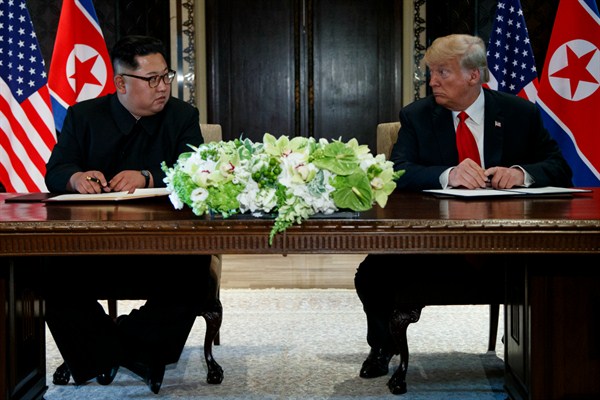The world has been fixated this week on the Singapore summit between U.S. President Donald Trump and Kim Jong Un, the ruler of North Korea. As the first-ever meeting between the serving leaders of these two bitter enemies, it was seen as an opportunity to redirect a relationship that only a few months ago seemed to be lurching toward armed conflict, and the risk of nuclear war. The outcome from Singapore, though, was less an equitable step forward than a clear win for Kim.
Since the unexpected summit was put together very quickly, while surviving a sudden and soon-reversed cancellation by Trump late last month, no one expected concrete, detailed agreements on the contentious issues that divided the two sides, particularly North Korea’s nuclear weapons and ballistic missile programs. Unsurprisingly, the joint statement that the two leaders signed at the end of the meeting was a vague agreement to pursue “new” relations and work toward a “robust peace regime on the Korean Peninsula.”
What was surprising was the degree to which Kim got what he wanted. Trump’s depiction of Kim after the meeting was gushing in praise for a tyrant widely considered one of the most repressive and dangerous on earth. “He’s got a great personality,” Trump said in an interview after the summit. “He’s a funny guy, he’s very smart, he’s a great negotiator. He loves his people.” Kim, meanwhile, made no serious concessions.

